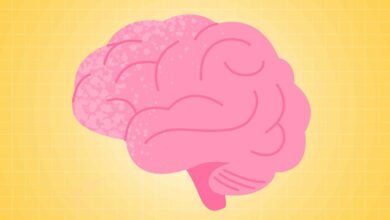Lost in a Scroll? Why Reading for Pleasure is Your Brain’s Best Friend
Do you remember the last time you curled up with a good book, completely lost in its pages? Or perhaps the satisfying rustle of a magazine as you flipped through it on a lazy Sunday morning? If you’re struggling to recall, you’re not alone. A recent study published in iScience reveals a concerning trend: Americans are reading for pleasure way less frequently than they used to—and honestly, that’s a problem.
Over the past two decades, there’s been a significant dip—around 40%—in the number of Americans who read for leisure. That’s not reading for work, not reading for school, but purely for the joy of it. Researchers from the University of Florida and University College London analyzed data spanning from 2003 to 2023, tracking how often people engaged with books, magazines, newspapers, e-readers, and audiobooks. The results? Each year, about 3% fewer people are picking up a book for fun.

Now, here’s where it gets interesting. This isn’t just a cultural shift; it’s potentially a mental health crisis in the making. As Saba Lurie, LMFT, a board-certified art therapist, points out, reading is a fantastic way to reduce stress and improve sleep—something many people desperately need right now. So, what’s driving this decline, and what can we do about it?
The Surprising Benefits of Reading
You might be wondering why this matters so much. After all, we have plenty of other entertainment options, right? Well, reading offers a unique set of benefits that scrolling through social media or binge-watching TV simply can’t replicate. Think of it this way for a moment: reading is like a workout for your brain. It strengthens cognitive function, improves memory, and expands your vocabulary. But the benefits extend far beyond that.
- Stress Reduction: Reading can transport you to another world, allowing you to escape the daily grind and unwind. It’s a form of active relaxation that can lower your heart rate and blood pressure.
- Improved Sleep: Unlike the blue light emitted by screens, reading a physical book before bed can actually help you fall asleep faster and enjoy a more restful night.
- Enhanced Empathy: When you read fiction, you step into the shoes of different characters, experiencing their emotions and perspectives. This can boost your empathy and improve your relationships.
- Increased Knowledge: Reading exposes you to new ideas, cultures, and ways of thinking. It’s a lifelong learning tool that can broaden your horizons and make you a more well-rounded person.
Honestly, I was surprised when I discovered just how powerful reading can be. It’s not just about escaping reality; it’s about enriching it. And guess what? There’s more to it than that.
Why Are We Reading Less? The Culprits Behind the Decline
So, if reading is so beneficial, why are we doing it less? Several factors are contributing to this decline. Let’s be honest about what this actually means: we’re living in a world of constant distractions. Social media, streaming services, and video games are all vying for our attention, and they’re incredibly effective at capturing it.
- The Rise of Digital Distractions: Our smartphones and tablets are designed to be addictive. The constant stream of notifications and updates makes it difficult to focus on anything for an extended period, including reading.
- Time Constraints: Many people feel like they simply don’t have enough time to read. Work, family responsibilities, and other commitments often take precedence, leaving little room for leisure activities.
- Lack of Access: While libraries are a valuable resource, they’re not always easily accessible to everyone. This is especially true for people living in rural areas or low-income communities.
- Changing Cultural Norms: Reading used to be a more valued pastime than it is today. As our culture becomes increasingly focused on instant gratification and visual stimulation, reading has taken a backseat.
The reality is often different than you’d expect. It’s not that people don’t *want* to read; it’s that they’re struggling to prioritize it in a world that’s constantly pulling them in other directions. For practical strategies on how to carve out time for reading, this guide offers time management tips that can help prioritize leisure activities.
The Unequal Impact: Who’s Reading Less and Why It Matters
The study also revealed some concerning disparities in reading habits. The decline in reading for pleasure was far more pronounced among Black Americans than white Americans. Steeper declines were also seen in people with lower incomes, less education, and those living in nonmetropolitan areas. You might be wondering why this is relevant. Well, it highlights the fact that access to books and the opportunity to read are not equally distributed.
People with lower incomes may have less disposable income to spend on books or library access. Those with less education may not have developed a strong reading habit in the first place. And those living in nonmetropolitan areas may have limited access to libraries and bookstores. These disparities underscore the importance of addressing systemic inequalities to ensure that everyone has the opportunity to enjoy the benefits of reading. This is where things take an unexpected turn – we need to focus on equitable access to resources.
Think of it this way for a moment: if reading is a pathway to knowledge, empathy, and well-being, then denying access to it is like closing doors to opportunity. Addressing these disparities is not just about promoting reading; it’s about promoting social justice.
Reigniting the Reading Spark: Practical Tips to Get Back into Books
Okay, so we know that reading is good for us, and we know that we’re doing it less. The question is, what can we do to reverse this trend? The bottom line is surprisingly straightforward: make reading a priority. It’s not always easy, but it’s worth it. Here are a few practical tips to help you get back into books:
- Set Realistic Goals: Don’t try to read a book a week if you haven’t read anything in years. Start small, with just 15-20 minutes of reading per day.
- Find Your Genre: Not all books are created equal. Explore different genres until you find something that truly captivates you. Whether it’s mystery, romance, science fiction, or biography, there’s a book out there for everyone.
- Create a Reading Nook: Designate a cozy space in your home where you can relax and focus on reading. Add comfortable seating, good lighting, and maybe a cup of tea.
- Join a Book Club: Reading with others can make the experience more enjoyable and provide accountability. Plus, it’s a great way to discover new books and perspectives.
- Embrace Audiobooks: If you’re short on time, audiobooks can be a great way to squeeze in some reading while you’re commuting, exercising, or doing chores.
If you’re like most people, you’ve probably experienced the frustration of trying to start a new habit and failing. But don’t give up! The key is to be patient with yourself, find what works for you, and celebrate your progress along the way. And guess what? There’s more beneath the surface. If you’re struggling to find time, explore the benefits of mindful scheduling to integrate reading into your routine.
Libraries: An Underutilized Treasure
One of the most striking findings of the study was that libraries appear dramatically underused. In 2023, only 0.5% of participants reported visiting a library the previous day. That’s a staggering statistic! Libraries are a treasure trove of resources, offering free access to books, magazines, computers, and other services. They’re also community hubs that host events, workshops, and book clubs. So, why aren’t more people taking advantage of them?
There are several possible explanations. Some people may not be aware of the resources that libraries offer. Others may find it inconvenient to visit a library due to distance, transportation issues, or time constraints. And still others may simply prefer to buy books online or borrow them from friends. But here’s the thing most people miss: libraries are more than just repositories of books. They’re vital community centers that promote literacy, lifelong learning, and social inclusion.
If there’s one takeaway from all this, it’s that we need to rediscover the value of libraries. Visit your local library, explore its collections, and participate in its programs. You might be surprised at what you find! And honestly? That’s the kind of progress worth paying attention to.
The Future of Reading: A Call to Action
The decline in reading for pleasure is a complex issue with no easy solutions. But here’s the catch that changes everything: we can all make a difference. Whether it’s by setting aside time for reading, supporting our local libraries, or encouraging others to pick up a book, we can help reignite the reading spark and reap the many benefits that come with it.
What most experts won’t tell you is that this isn’t just about preserving a cultural tradition; it’s about investing in our mental health, our communities, and our future. Reading is a powerful tool that can empower us to learn, grow, and connect with others. Let’s not let it fade away. And honestly? That’s the kind of progress worth paying attention to. For more in-depth analysis, this article details the long-term impacts of reduced reading habits on society.



